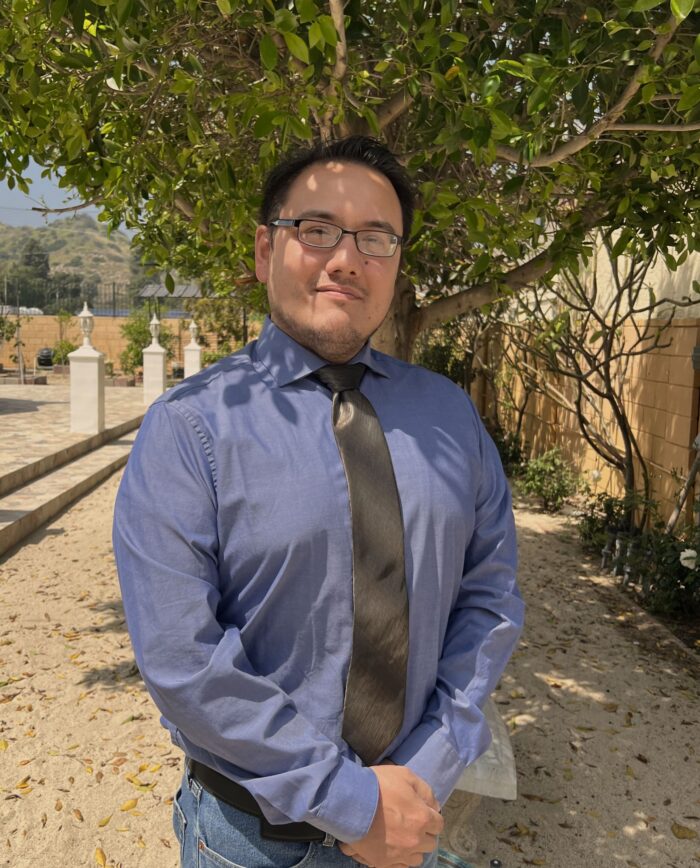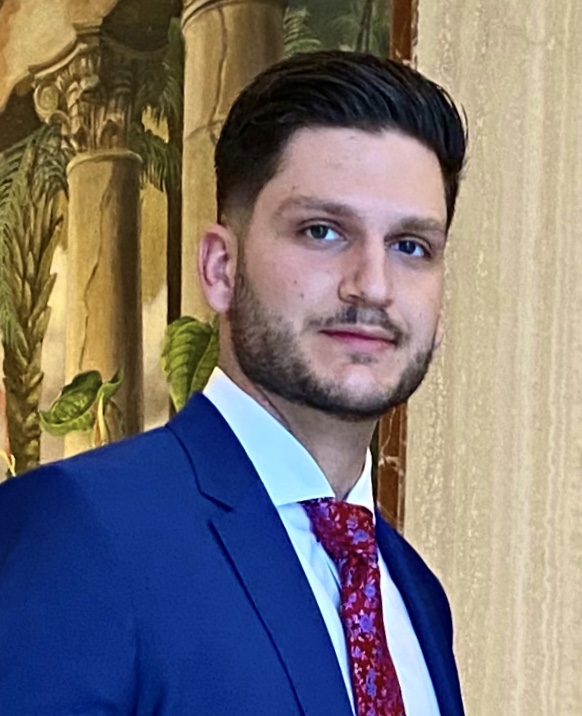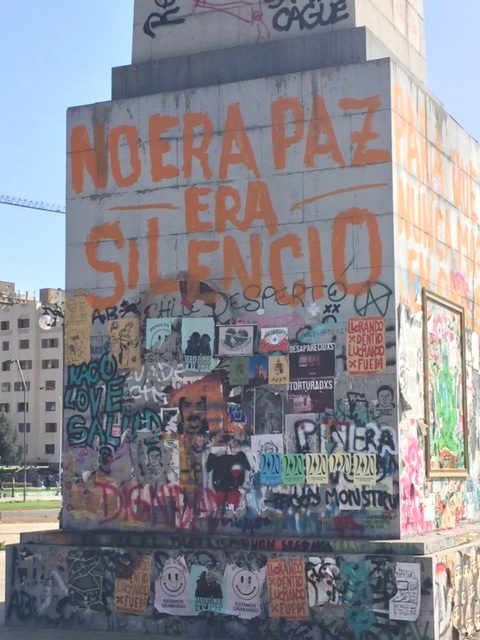Liberal Arts and Sciences
Political Science
Bachelor of Arts (B.A.)
The Political Science program offers an interdisciplinary approach to the study of political science with a global perspective and insights from historical study. Core seminars in international relations, comparative politics, political theory, and American politics are complemented by studies in topics such as globalization and terrorism. A year-long pair of seminars resulting in a senior thesis as well as opportunities for practical internships cap the program. The program also includes the study of economics.
The Political Science program is no longer accepting new applications. Students interested in Political Science can find information for these programs offered at the University of Redlands. If you have already applied or inquired about this program, we invite you to reach out to our Admissions Office to discuss the options that are available to you by emailing [email protected] or calling 818.252.5221.
Apply Request Information Take a TourCreate Your Future
Political Science majors have the broad perspective, critical thinking abilities, and interpersonal skills that make effective leaders in any setting. The major aids in law school preparation, leading to graduate-level education for a career in the legal field. Students are also well-prepared for admission into graduate programs in political science or international affairs, as well as careers in government service. Political Science students gain the knowledge, tools, and networking skills necessary to build successful careers. Our small class sizes allow individual attention from diverse faculty.
Top reasons to come to Woodbury:
- Woodbury’s location offers numerous internship and networking opportunities.
- Small class sizes allow for rich interaction with skilled faculty.
- Partnerships with local law schools give students an edge in law school preparation.
Students of Political Science gain a knowledge and understanding of how analyze and synthesis information intelligently. They also gain superior communication skills such as the ability to write and present information in large and small settings. These skills are consistently coveted by employers in a variety of professions.

Internships and Careers
Internship opportunities:
- Homeboy Industries
- Local law practices
- Various local political campaigns
- City of Burbank
Internships are a required component of the BA in Political Science.
Career opportunities:
- Elected city official
- Lawyer
- Teacher and college professor
- Business owner
- Social worker
- Entrepreneur
- Public servant
- Journalist
- Educator
- Entrepreneur
- Attorney
- Researcher
- Lobbyist
Facilities
Intimate classrooms, state-of-the-art auditorium, MAC and PC computer labs, on-campus library, and art galleries.
Courses
Politics Science students develop an understanding of how our world has been shaped by the last 250 years of cultural practices, economic structures and social organizations. This interdisciplinary approach allows students to experience the complexities of decision making and the diversity of ideologies through the lens of historical change.
First three courses required of both Political Science and History majors and are offered annually. The Topics class is offered occasionally and Economics each semester.
POHI 101: The State, the Economy, and the City
This course is designed to introduce students to major ideas, themes, and texts in the study of politics and history. The class will deal with three broad themes that are important foundations for the study of human societies: the state, the economy, and the city. Rather than limit our attention to a single historical period or geographic region, we will instead draw from a number of case studies ranging from Ancient Rome to contemporary L.A.—to consider the common concepts and processes that underpin different societies. The goals of the course are threefold: to provide students with an awareness of the major events, social processes, and historical figures that have created the modern world; to develop in students a knowledge of the key terms, theories, and concepts that shape how we understand the histories, societies, and political behaviors of human societies; and to familiarize students with world geography and the histories of different regions of the world. Paired with POHI 102, Wars, Gods, and Revolutions, both courses are intended to provide students with the basic knowledge and skills required to take upper-level classes in Politics & History. Lecture. Prerequisites: None.
POHI 102: Wars, Gods, and Revolutions
This 3-unit course analyzes the historical, political, and social components of political violence through an examination of significant readings focusing on diverse theoretical perspectives. This introduction to political ideas related to war, religion, and revolution provides a global perspective that considers the multiplicity of human identity and how those identities are mobilized in order to wage war and revolution. There are three goals for this course: (1) provide students with an awareness of the major events, social processes, and historical figures that have shaped the modern world; (2) to develop in students a knowledge of the key terms, theories, and concepts that shape how we understand the histories, societies, and political behaviors of human societies; and (3) to familiarize students with world geography and the histories of variousregions of the world. Lecture. Prerequisites: None.
POHI 221: Introduction to Political and Historical Research
This seminar, serving as a transition to upper-division work, prepares students for systematic investigations into issues and ideas relevant to the study of politics and history. Topics in American and world history and politics not covered in the interdisciplinary core (Journeys, Natures, Conflicts, and Knowledge) are also addressed. Seminar. Prerequisites: WRIT 112, Academic Writing II or WRIT 212, Rhetoric and Design; LSCI 105, Information Theory and Practice or LSCI 106, Information Sources in Architecture and Interior Architecture or LSCI 205, Information Sources in the Disciplines; COMM 120, Public Speaking; and one of either INDS 101, Journeys, INDS 102, Natures, INDS 103, Conflicts, or INDS 104, Knowledge.
POHI 270: Topics in Politics and History
This is a specialized course that focuses on various issues of interest in politics and history. Seminar. Prerequisites: WRIT 112, Academic Writing II or WRIT 212, Rhetoric and Design; LSCI 105, Information Theory and Practice or LSCI 106, Information Sources in Architecture and Interior Architecture or LSCI 205, Information Sources in the Disciplines; COMM 120, Public Speaking; and one of either INDS 101, Journeys, INDS 102, Natures, INDS 103, Conflicts, or INDS 104, Knowledge.
ECON 200: Elementary Economics
This course is an analysis of the contemporary American economic system. This course is a combination of macroeconomics and microeconomics. Topics include: inflation, unemployment, national income determination, money and banking, fiscal and monetary policies, theories of production and consumer choice, prices and outputs, monopoly and competition, wages and profits, international trade and finance. Lecture. Prerequisite: none.
ECON 203: Macroeconomics
This course is an introduction to macroeconomic analysis. Economic theory relative to the determination of national income, inflation, unemployment, money and banking, government fiscal and monetary policies in offsetting economic fluctuations will be covered. Students will also study the applications of macroeconomic theory, including its use in evaluating and forming public policy. Lecture. Prerequisite: MATH 149, Intermediate Algebra.
ECON 204: Microeconomics
This course is an introduction to microeconomic analysis. Economic theory relative to demand, marginal analysis, consumer behavior, costs and production, competitive and noncompetitive product markets, labor markets and welfare will be covered. Applications of microeconomic theory, including its use in evaluating and forming public policy, will also be covered. Lecture. Prerequisite: ECON 203, Macroeconomics.
Both Political Science and History majors are required to take eight of the following upper-division seminars for a degree; double majors (Political Science and History) take all twelve. All seminars are offered on an every-other year schedule allowing students to complete these requirements in a timely manner.
Political Science majors are required to take the four following seminars and four more from either the History seminars below or the Politics & History seminars:
POHI 321: International Wars (International Relations)
POHI 325: Modern Revolutions (Comparative Politics)
POHI 331: Classic Political Theory (Political Theory)
POHI 337: United States Constitutional Law (American Politics)
History Majors are required to take the four following seminars and four more from either the Political Science seminars above or the Politics & History seminars:
POHI 322: Civil Wars (Non-European)
POHI 335: Migration and Colonization (Early Modern)
POHI 336: Liberation and Decolonization (Modern)
POHI 339: The Holocaust (European)
Either major may select from the following Politics and History seminars to make the required number of eight seminars for the degree; double majors take all twelve.
POHI 323: Genocides
POHI 326: Terrorism
POHI 332: Contemporary Political Theory
POHI 333: Globalization
POHI 370: Topics in Politics and History (occasionally offered at student or faculty request on an issue of current interest)
Seminars
POHI 321: International Wars
This seminar explores the origins, course and consequences of modern international conflicts through the analytical lens of International Relations. The course introduces students to the wide range of issues involved in the study of international relations including the workings of the state system, the causes of international conflict and violence, and the political and social ideologies of international alliances and groups. Topics include such classic struggles as the Napoleonic Wars, the First and Second World Wars, and proxy wars of the Cold War, as well as contemporary international wars in Latin America, Africa and Asia. Additionally, students will explore the evolving nature of power in the post-Cold War environment as well as global challenges like the rise of China, nation-building and ongoing conflicts in the Middle East. Seminar. Prerequisites: WRIT 112, Academic Writing II or WRIT 212, Rhetoric and Design; LSCI 105, Information Theory and Practice or LSCI 106, Information Sources in Architecture and Interior Architecture or LSCI 205, Information Sources in the Disciplines; COMM 120, Public Speaking; and one of either INDS 101, Journeys, INDS 102, Natures, INDS 103, Conflicts, or INDS 104, Knowledge.
POHI 322: Civil Wars
This seminar explores the origins, course, and consequences of modern internecine conflicts and includes analyses of the political ideologies and social dynamics that drove these civil wars. In addition to studying such classic struggles as the American, Russian, and Chinese Civil Wars, we will also consider contemporary civil wars in Latin America, the Middle East and Africa. Topics include the different categories of civil conflict (coups, peasant insurrections, guerrilla wars), the class, ethnic or ideological rivalries that drive civil wars and the philosophical, legal and political theories that attempt to make sense of intra-state conflict. Seminar. Prerequisites: WRIT 112, Academic Writing II or WRIT 212, Rhetoric and Design; LSCI 105, Information Theory and Practice or LSCI 106, Information Sources for Architecture and Interior Architecture or LSCI 205, Information Sources in the Disciplines; COMM 120, Public Speaking; and one of either INDS 101, Journeys, INDS 102, Natures, INDS 103, Conflicts, or INDS 104, Knowledge.
POHI 323: Genocides
This seminar delves into the intentional attempts by organized groups, from state authorities to local political leaders, to destroy, in whole or in part, the members of a particular national, ethnic, religious, or racial group. Topics include debates concerning the meaning of the term genocide and its political uses and abuses, as well as modern case studies ranging from the Ottoman genocide of the Armenians in WWI, to the Holocaust of WWII and Rwanda and the former Yugoslavia in the 1990s. Seminar. Prerequisites: WRIT 112, Academic Writing II or WRIT 212, Rhetoric and Design; LSCI 105, Information Theory and Practice or LSCI 106, Information Sources in Architecture and Interior Architecture or LSCI 205, Information Sources in the Disciplines; COMM 120, Public Speaking; and one of either INDS 101, Journeys, INDS 102, Natures, INDS 103, Conflicts, or INDS 104, Knowledge.
POHI 325: Modern Revolutions
This course is an introduction to the study of the great social revolutions of the modern world and aims to enhance the student’s ability to analyze contentious and violent political events. Students will define revolution and examine competing theories about its causes, outcomes, and processes. While examining critically the historical cases of France, Russia, and China, students will also consider how more contemporary cases challenge or support established theories. Seminar. Prerequisites: WRIT 112, Academic Writing II or WRIT 212, Rhetoric and Design; LSCI 105, Information Theory and Practice or LSCI 106, Information Sources in Architecture and Interior Architecture or LSCI 205, Information Sources in the Disciplines; COMM 120, Public Speaking; and one of either INDS 101, Journeys, INDS 102, Natures, INDS 103, Conflicts, or INDS 104, Knowledge.
POHI 326: Terrorism
This seminar analyzes the historical and political components of terrorism through an examination of significant readings focusing on diverse theoretical perspectives. Terrorism as a regional as well as a global phenomenon is examined through its relationship to political ideologies, religious fundamentalisms, criminal activity, and state sponsorship. Seminar. Prerequisites: WRIT 112, Academic Writing II or WRIT 212, Rhetoric and Design; LSCI 105, Information Theory and Practice or LSCI 106, Information Sources in Architecture and Interior Architecture or LSCI 205, Information Sources in the Disciplines; COMM 120, Public Speaking; and one of either INDS 101, Journeys, INDS 102, Natures, INDS 103, Conflicts, or INDS 104, Knowledge.
POHI 331: Classic Political Theory
This seminar develops themes such as the legitimacy of ruling authority, the administration of justice, the role of freedom and constraint, and the relationship between individual and communal rights and responsibilities. Readings are drawn from authors ranging from Plato to Karl Marx, from Niccolò Machiavelli to John Stuart Mill. Seminar. Prerequisites: WRIT 112, Academic Writing II or WRIT 212, Rhetoric and Design; LSCI 105, Information Theory and Practice or LSCI 106, Information Sources in Architecture and Interior Architecture or LSCI 205, Information Sources in the Disciplines; COMM 120, Public Speaking; and one of either INDS 101, Journeys, INDS 102, Natures, INDS 103, Conflicts, or INDS 104, Knowledge.
POHI 332: Contemporary Political Theory
This seminar is a comparative examination of the theoretical bases of global political systems, including ideologies originating in Asia, Africa, and Latin America, as well as Europe and the United States after the Second World War. Topics include the relationship between the state and the economy, the role of non-governmental organizations in the extension of state power, and the use and abuse of mass mobilization among others. Seminar. Prerequisites: WRIT 112, Academic Writing II or WRIT 212, Rhetoric and Design; LSCI 105, Information Theory and Practice or LSCI 106, Information Sources in Architecture and Interior Architecture or LSCI 205, Information Sources in the Disciplines; COMM 120, Public Speaking; and one of either INDS 101, Journeys, INDS 102, Natures, INDS 103, Conflicts, or INDS 104, Knowledge.
POHI 333: Globalization
This seminar examines the problem of contemporary globalization from historical, political, economic and cultural lenses. The class will first delve back into history to consider previous large-scale political economic-cultural zones, including the Roman, Islamic and Mongol empires, before turning to the contemporary world system. Topics include the political economy of global markets, urbanization patterns, and the growth of international institutions, from the International Monetary Fund to the market in heavy metal music. Seminar. Prerequisites: WRIT 112, Academic Writing II or WRIT 212, Rhetoric and Design; LSCI 105, Information Theory and Practice or LSCI 106, Information Sources in Architecture and Interior Architecture or LSCI 205, Information Sources in the Disciplines; COMM 120, Public Speaking; and one of either INDS 101, Journeys, INDS 102, Natures, INDS 103, Conflicts, or INDS 104, Knowledge.
POHI 335: Migration and Colonization
This seminar introduces students to the history of colonization, focusing particularly on the period of European colonial expansion from the Spanish conquest of the Americas in the fifteenth century to the ‘Scramble for Africa’ in the nineteenth century. Topics include the causes and consequences of colonial expansion, the rule of colonial elites and their sources of power, the Atlantic slave trade and the abuses of indigenous and immigrant peoples Seminar. Prerequisites: WRIT 112, Academic Writing II or WRIT 212, Rhetoric and Design; LSCI 105, Information Theory and Practice or LSCI 106, Information Sources in Architecture and Interior Architecture or LSCI 205, Information Sources in the Disciplines; COMM 120, Public Speaking; and one of either INDS 101, Journeys, INDS 102, Natures, INDS 103, Conflicts, or INDS 104, Knowledge.
POHI 336: Liberation and Decolonization
This seminar explores the collapse of Europe’s empires and the anti-colonial struggles that emerged in Africa, Asia and the Americas between the eighteenth and the twentieth centuries. Topics include the complex problems of national identity in an era of wars of liberation, the intellectual systems that anti-colonial movements developed (republicanism, nationalism, socialism, Islamism) and the internal class and ethnic divisions within post-colonial states. Seminar. Prerequisites: WRIT 112, Academic Writing II or WRIT 212, Rhetoric and Design; LSCI 105, Information Theory and Practice or LSCI 106, Information Sources in Architecture and Interior Architecture or LSCI 205, Information Sources in the Disciplines; COMM 120, Public Speaking; and one of either INDS 101, Journeys, INDS 102, Natures, INDS 103, Conflicts, or INDS 104, Knowledge.
POHI 337: United States Constitutional Law
This seminar studies the historical development and contemporary function of constitutional law — defined as the interpretation and implementation of the US Constitution — through the problematics of liberal democratic theory and the role of the judiciary as an actor in political life. Major cases in constitutional law, on such topics as the extent of judicial power, states’ rights, and equal protection, are examined. Seminar. Prerequisites: WRIT 112, Academic Writing II or WRIT 212, Rhetoric and Design; LSCI 105, Information Theory and Practice or LSCI 106, Information Sources in Architecture and Interior Architecture or LSCI 205, Information Sources in the Disciplines; COMM 120, Public Speaking; and one of either INDS 101, Journeys, INDS 102, Natures, INDS 103, Conflicts, or INDS 104, Knowledge.
POHI 339: The Holocaust
The word “holocaust,” Greek in origin, means “sacrifice by fire” (USHMM 2013). We have come to understand this term as specific to the genocide of European Jewry, along with other stigmatized groups, during WWII. This course examines how the “systematic, bureaucratic, state-sponsored persecution of approximately six million Jews by the Nazi regime and its collaborators” came to be (ibid.). The course explores Jewish life in Europe before WWII, a historical understanding of racism and anti-Semitism, the rise and expansion of the Nazi empire, the construction of the “Final Solution,” establishment of ghettos and the concentration camp system, and the varied experiences of victims, rescuers, and perpetrators. European field. Seminar. Prerequisites: WRIT 112, Academic Writing II, or WRIT 212, Rhetoric and Design; LSCI 105, Information Theory and Practice, or LSCI 106, Information Sources for Architecture and Interior Architecture, or LSCI 205, Information in the Disciplines; COMM 120, Public Speaking; and one of either INDS 101, Journeys, INDS 102, Natures, INDS 103, Conflicts, or INDS 104, Knowledges.
POHI 370: Topics in Politics and History
This is a specialized course that focuses on various issues of interest in politics and history. Seminar. Prerequisites: WRIT 112, Academic Writing II or WRIT 212, Rhetoric and Design; LSCI 105, Information Theory and Practice or LSCI 106, Information Sources in Architecture and Interior Architecture or LSCI 205, Information Sources in the Disciplines; COMM 120, Public Speaking; and one of either INDS 101, Journeys, INDS 102, Natures, INDS 103, Conflicts, or INDS 104, Knowledge.
POHI 299, 399, 499: Independent Study
This is an individual investigation into a field of special interest chosen by the student with the approval of the dean. Regular, periodic meetings with the department chair or an assigned faculty member are required. Thirty hours required for each unit of credit. Prerequisite: Consent of the dean.
Majors in either Political Science or History take the following courses within which they focus on the methodologies and writing styles of their discipline. They produce a thesis in line with these approaches. Double majors write two separate theses, one for each major.
POHI 400: Advanced Research Methods
This seminar involves a discussion of significant historiographical and political science literature, from model exemplars to failed experiments and methodologies, both quantitative and qualitative, in preparation for the writing of the senior thesis research paper. Seminar. Prerequisites: WRIT 112, Academic Writing II or WRIT 212, Rhetoric and Design; LSCI 105, Information Theory and Practice or LSCI 106, Information Sources in Architecture and Interior Architecture or LSCI 205, Information Sources in the Disciplines; COMM 120, Public Speaking; and one of either INDS 101, Journeys, INDS 102, Natures, INDS 103, Conflicts, or INDS 104, Knowledge; and POHI 221, Introduction to Political and Historical Research.
POHI 401: Senior Thesis
This topical seminar, which focuses on a particular problem in history and politics, integrates the methodological approach of each discipline in a comparative format. Students use individual and peer work to develop research topics and produce a significant research paper as their senior thesis that is publicly reviewed by the faculty of the department. Seminar. Prerequisite: POHI 400, Advanced Research Methods.
POHI 490: Internship
Students obtain practical, on-the-job training in a setting of business, law, government agency or other organization. Work experience is complemented by an academic requirement and periodic meetings with student’s on-campus internship advisor. Internship contract required by the registrar. Thirty hours per unit credit. Prerequisites: Senior standing, Politics and History majors only.
Faculty Directory
Woodbury faculty are accomplished, caring academics and professionals dedicated to supporting the success of students throughout their academic journey. They bring their professional expertise to students and work closely with them to teach the skills and theory required to enter professional practice or pursue advanced study. Through this individual attention, Woodbury fosters close mentoring relationships between faculty and students in a supportive and encouraging environment.
Accreditations:
WSCUC: Senior College and University Commission (formerly WASC)




